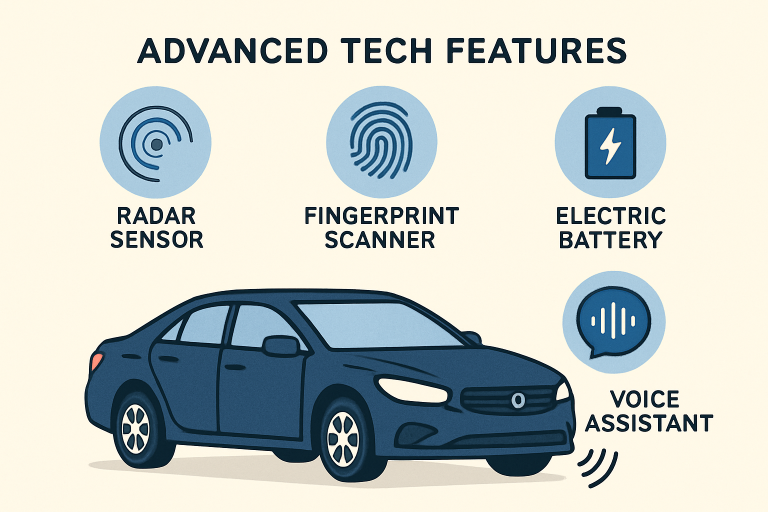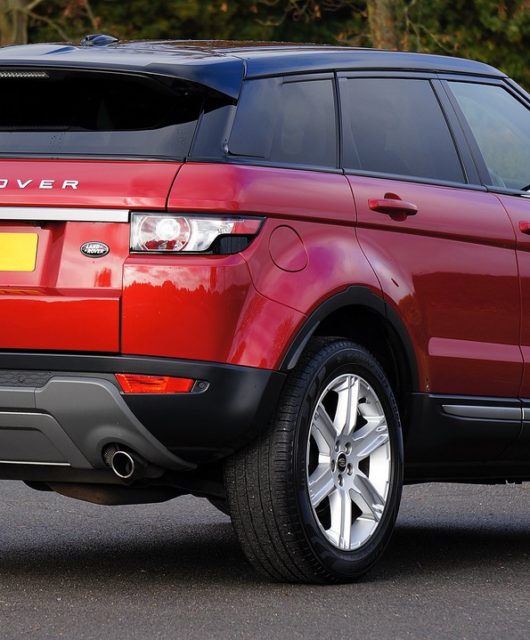How Car Tech Is Shaping Today’s Driving Experience
Introduction
Automotive innovation is rapidly transforming how we drive, with new developments becoming accessible to more consumers each year. What used to sound futuristic—cars driving themselves, unlocking doors with a look, predicting maintenance before breakdowns—has quickly begun to shift from imagination to commonplace reality. Today’s vehicles integrate advanced technologies to amplify safety, convenience, and driving enjoyment. For those seeking to explore the latest advancements in automotive technology, you can learn more about current models and innovations online.
With automakers and tech companies leading the charge, these features are making everyday journeys safer, smarter, and more personalized. Expanding self-driving services, biometric vehicle access, electric vehicle (EV) flexibility improvements, adaptive driver-assistance systems, and predictive maintenance—all contribute to a redefined, elevated driving experience. Here’s a look at the technologies making headlines and making a difference on the road today.
Self-Driving Technology
Autonomous Rides: Beyond the Test Track
Self-driving technology is reaching new milestones as companies like Waymo introduce autonomous ride-hailing services to urban areas across the United States. By leveraging artificial intelligence and an array of real-time sensors—including cameras, radar, and lidar—these vehicles can safely navigate dense city traffic and unpredictable road conditions without human intervention. This groundbreaking shift is poised to change how people commute and transform how goods are delivered through autonomous trucking pilots and fleets.
Advanced Driver-Assistance
While truly self-driving vehicles are on the horizon, driver-assistance technologies are already a reality for many drivers. Systems like Ford’s BlueCruise and Tesla’s Autopilot offer lane centering, traffic-aware cruise control, and hands-free capabilities on highways. These technologies aim to minimize human error—the leading cause of collisions—while reducing stress and fatigue on long drives. As these features become more refined and widely available, they pave the way for broader adoption of full autonomy in the future. For further insights on the rapid evolution of self-driving technology, visit this comprehensive article from Wikipedia.

Biometric Car Keys
Security and Personalization
Biometric authentication, once confined to smartphones, has made inroads into the automotive world. Models like the Hyundai Genesis GV60 and Tesla vehicles are debuting facial and fingerprint recognition for car entry and engine startup. This advancement removes the need for traditional keys or key fobs, enhancing convenience while significantly improving security. The vehicle can verify the driver’s identity and adjust seat positions, mirrors, and climate settings based on individual profiles.
Wider Adoption and Future Trends
Automakers invest in biometric innovations to meet consumer demand for seamless, secure driving experiences. These systems are expected to become more affordable and reliable, setting a new standard in personal vehicle security. Research shows consumers are increasingly attracted to this technology, expecting biometric keys to extend beyond luxury segments. Top Gear offers a deeper look at how these features are being rolled out and adopted.
Electric Vehicle Advancements
Customizable Battery Options
The electric vehicle market is rapidly evolving as consumer preferences diversify. One significant advancement is the introduction of customizable battery range options. Vehicles like the upcoming 2026 Kia EV4 will offer buyers the choice of different battery configurations, enabling them to tailor their vehicle’s range, performance, and price to fit their needs. This makes EVs more attainable and gives more flexibility to those who drive mainly in urban environments versus those needing longer ranges.
Making EVs More Accessible
Automakers pair these customizable options with enhanced charging infrastructure and improved battery longevity. These factors collectively drive down the total cost of ownership, making EVs a practical choice for more households. Expect greater innovation and variety in entry-level and premium EV models as competition intensifies.
Adaptive Technologies
Driver-Assistance Features For All
Advanced safety and convenience technologies, once reserved for luxury models, are becoming standard in mainstream vehicles. Subaru’s EyeSight suite, for instance, includes adaptive cruise control, lane keeping assist, and pre-collision braking, which are now offered on base models. Such features are part of a larger movement toward reducing collisions and making driving less demanding for everyone on the road.
Voice Controls and Artificial Intelligence
AI-powered voice assistants like Kia’s SoundHound are transforming how drivers interact with their vehicles. These intelligent systems can manage navigation, entertainment, and vehicle settings via natural voice commands, allowing drivers to stay focused on the road. As automotive AI matures, expect these interactions to become even more seamless, intuitive, and responsive, significantly enhancing the overall driving experience. Consumer Reports provides helpful guidance on the safety benefits of adaptive technology in today’s vehicles.
AI-Powered Predictive Maintenance
Proactive Vehicle Care
AI-powered diagnostic systems are ushering in a new era of predictive maintenance. Tools like GM’s OnStar harness data from various sensors throughout the vehicle to monitor engine health, tire pressure, battery condition, and more. By analyzing these data streams in real time, the system can alert owners to potential issues before they become serious breakdowns—saving time, reducing unexpected expenses, and extending the vehicle’s lifespan.
The Future of Vehicle Reliability
The shift toward proactive rather than reactive car maintenance means fewer disruptions to everyday life and enhanced confidence for drivers. As connected technologies evolve, expect these systems to become standard across all vehicle classes, creating a new baseline for maintenance ease and cost efficiency. Industry experts forecast that AI-enabled maintenance will become a deciding factor for buyers prioritizing reliability.
From self-driving cars to AI-powered maintenance, the future of driving is unfolding. These intelligent features are quickly moving mainstream, redefining what drivers expect from their vehicles and making the road ahead safer, smarter, and significantly more enjoyable.
Final Thoughts
Advancements in automotive technology are redefining what it means to drive, blending safety, convenience, and connectivity into a seamless experience. From intelligent driver-assist systems to integrated infotainment and eco-friendly innovations, today’s vehicles are more innovative and responsive than ever. As these technologies continue to evolve, they improve performance and comfort and shape a future where driving is safer and more intuitive. Embracing these changes ensures a more efficient and enjoyable journey on every road.









